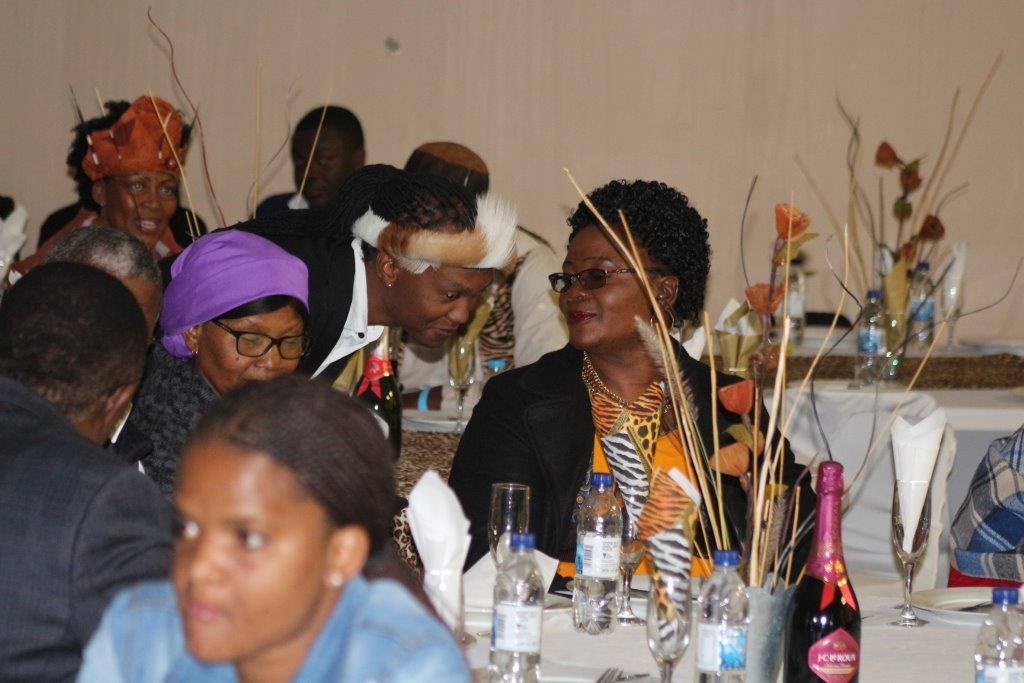Namibian cultural group uses traditional dance to address social issues and empower youth

The Black Melody Cultural Group (BMCG) marked its 32nd anniversary on Friday evening in Windhoek, Namibia’s capital.
The group, dressed in traditional animal-skin attire, captivated the audience with performances that highlighted the rich cultural heritage of Namibia’s Batswana tribe.
Founded in 1992 by seven young members in Gobabis, about 200 km east of Windhoek, BMCG set out with a mission to engage local youth in constructive and educational activities centered around cultural heritage.
“We aim to achieve this through traditional songs, theatre, poetry, and music, particularly our style known as Borankane,” explained Juliette Mogotsi, president of the group.
Borankane, performed in the indigenous Setswana language, mirrors the community’s connection to wildlife, socialization, and livelihood.
The dance involves unique foot-sliding techniques, body movements, and a cappella chanting that tell stories of community life and tradition.
Over the years, the BMCG has become a platform for addressing pressing social issues such as poverty, HIV/AIDS, and gender-based violence.
The group has used its performances to shed light on these challenges while promoting unity and cultural diversity in the post-independence Namibian society.
“The challenges faced by Namibia are many, and our group aims to change mindsets by blending culture with contemporary life,” said Mogotsi.
The group has also worked to preserve traditional knowledge, producing two albums in Setswana to support these efforts.
The first, Tautona Pohamba, released in 2009, addresses the devastating impact of HIV/AIDS in Namibia.
The second album, Letsatsi Le Dule, released in 2012, along with a DVD in 2014, promotes hope and resilience.
Today, the BMCG, which now boasts 35 members, operates as a profitable enterprise.
The group charges between 3,000 Namibian dollars (approximately 166 USD) and 15,000 Namibian dollars for performances and finances its activities through fundraising, concerts, and corporate events.
“The funds are reinvested into the group, and sometimes members receive a share of the profits,” said Mogotsi.
The impact of the BMCG extends beyond its performances, transforming the lives of many young people.
Ehrenfriede Katuuo, a 25-year-old member who joined in 2019, spoke of how the group enhanced her cultural understanding and social skills.
“Joining the group changed everything for me. I gained a deeper understanding of my culture and language that I wouldn’t have gotten at home,” she shared.
“As an introvert, I struggled to socialize, but Black Melody helped me connect with others in a more authentic way.”
The group’s cultural outreach also extends internationally.
BMCG has toured and performed in countries such as Rwanda, Cuba, Angola, and Slovakia.
This year, two members even served as cultural ambassadors during a two-week cruise in Spain.
Despite their successes, the group faces challenges, including limited training space and financial resources.
“Our solution is networking and creating partnerships within the cultural sector,” Mogotsi explained.
Looking ahead, the group plans to expand its reach by tapping into the tourism industry, which is one of Namibia’s most significant economic sectors.
“We aim to strengthen our support base and international partnerships.
We also hope to explore other artistic avenues such as instrumental music, theatre, and poetry, and offer dance and Setswana language classes,” Mogotsi concluded.
About The Author
dailymailafric
I am an avid African news observer, and an active member of Daily Mail Africa.
I’m Passionate about staying informed on diverse topics across the continent,
I actively contribute to publishing on political, economic and cultural developments in Africa.



